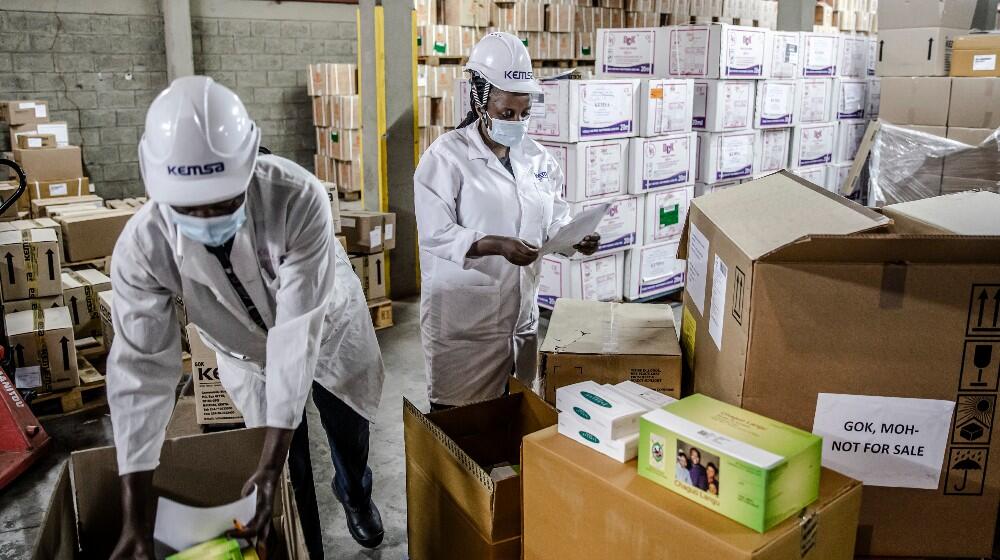Ensuring that health facilities remain optimally stocked with family planning commodities is often a complex task that requires a well coordinated supply chain to reach even the most remote location. In Kenya, challenges including a lack of end-to-end visibility of the supply chain has resulted in ad-hoc resupply models and poor forecasting and quantification that results in stock-outs and wastage.
UNFPA has provided support to the Ministry of Health and the Kenya Medical Supplies Authority (KEMSA) to strengthen the national supply chain system through the roll-out of an integrated Family Planning Logistics Management Information System (LMIS) that will enable greater visibility of the commodities stocks status using one dashboard with drill down capabilities.The integrated LMIS brings together data from the Kenya Health Information System, the KEMSA LMIS, and other partner-supported information systems to enable facility and sub county staff to make orders based on consumption trends. The system also provides for an order approval mechanism that gives an opportunity for review of orders both at county and national level, thereby minimizing under or over supply of commodities to facilities, and avoiding wastages in terms of expiries, overstocking and pilferage in the health facilities.
Accompanying the integrated LMIS is the CommodityEarly Warning and Alert System, a proactive commodity management system that enhances end to end visibility of health commodities by highlighting commodity scenarios at each level of the health supply chain. The alert system functionalities includes dashboards that provide the status of commodities in the procurement pipeline, national stocking at KEMSA, and the facility stocks. The system also provides warnings on overstocking, understocking based on the monthly consumption data.
As part of a costed roll-out plan, UNFPA supported the training of county health officials on the use of the integrate LMIS, and how to interpret information in the commodity early warning and alert system, so as to inform order management. “The Integrated LMIS will provide a proactive support system to guide decision making for commodity security,” said UNFPA Family Planning Specialist Charity Koronya.
“We are confident that the rollout of the LMIS in the public and private healthcare system will help improve the overall quality of family planning services to the last mile in Kenya,” said Dr. Bashir Issak, who heads the Department of Family Health at the Ministry of Health. “The emphasis is on ensuring the “six rights” to family planning users, which include the right product, in the right quantity, in the right condition, in the right place, at the right time, and at the
right costs,” he said.


